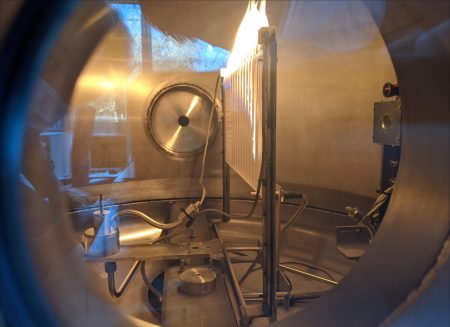PFDS – Pre-Ignition Fire Detection System

Fire on board inhabited spacecraft or habitats on the Moon or Mars is one of the greatest conceivable hazards. Fires are currently detected exclusively by smoke detectors. Due to the weightlessness in orbit, they are prone to frequent false alarms triggered by non-sedimenting dust, while the preferred direction of smoke propagation is slowly towards the life-support system’s intake. In addition, smoke detectors can principally only detect an existing fire situation and, in the omnipresence of dust on the Moon, they can no longer be expected to function reliably. The new PFDS approach detects potential fire sources based on off-normal thermal outgassing of materials, e.g., volatile organic components from plastics or fabrics, in the cabin air. The semiconducting metal oxide sensors do not react to specific gases, but react to alterations in the overall composition of the air. Trained by applying machine-learning methods, they can reliably recognise alarming composition patterns. The method has already been successfully used to survey underground high-voltage power lines. It also has great potential for improved detection of terrestrial fires – ideally long before they break out.
Benefits:
- Detection of potential fire sources even before ignition occurs
- Proven principle
- Low-cost components (for terrestrial application)
- Easy installation
- Wide range of applications
Universität Bremen,
Zentrum für angewandte Raumfahrttechnologie und Mikrogravitation, ZARM
Christian Eigenbrod
Christian.Eigenbrod@zarm.uni-bremen.de
zarm.uni-bremen.de


